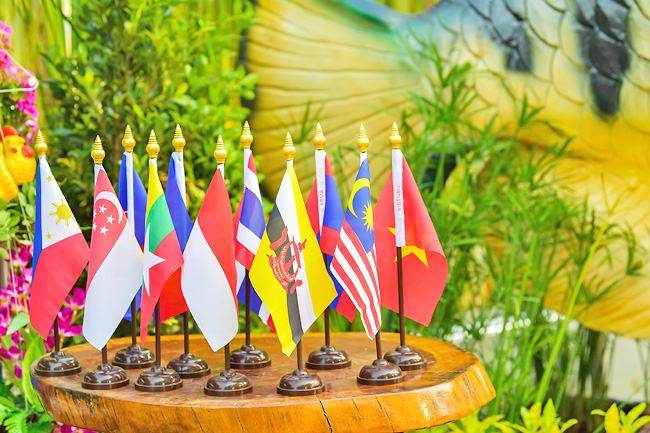SIEM REAP, CAMBODIA (XINHUA) – The Regional Comprehensive Economic Partnership (RCEP) free trade agreement could be a contributor to the region’s post-COVID-19 pandemic recovery efforts, according to an Association of Southeast Asian Nations (ASEAN) joint statement released yesterday.
The statement was issued after the inaugural RCEP Ministers’ Meeting held in northwest Cambodia’s Siem Reap province, on the sidelines of the 54th ASEAN Economic Ministers’ Meeting.
According to the statement, the meeting welcomed the entry into force of the RCEP agreement on January 1, 2022 and looked forward to its ratification by all signatory states.
The mega-regional trade pact comprises 15 Asia-Pacific countries including 10 ASEAN member states – Brunei, Cambodia, Indonesia, Laos, Malaysia, Myanmar, the Philippines, Singapore, Thailand and Vietnam – and their five trading partners, namely China, Japan, South Korea, Australia and New Zealand.
“The meeting shared the view that the RCEP could contribute to the region’s post-pandemic recovery efforts and to creating a more resilient supply chain,” the statement said. “In this regard, the meeting highlighted the need to promote greater utilisation of the RCEP agreement to deepen regional economic integration.”

The meeting also noted the progress of the work of the RCEP Joint Committee and welcomed the establishment of subsidiary bodies under the joint committee’s supervision, it said.
“The meeting encouraged officials to work to expand the utilisation of the RCEP agreement and to monitor and review the implementation of the RCEP agreement to improve business environment in the region,” the statement said.
Also, the meeting looked forward to the expeditious establishment of the RCEP Secretariat, on terms to be agreed by the parties, to provide secretariat and technical support to the RCEP Joint Committee and its subsidiary bodies, it added.
“The RCEP trade deal is an important instrument to boost the post-pandemic economic recovery in the region,” Cambodian Ministry of Commerce’s Undersecretary of State and Spokesman Penn Sovicheat said during a press conference after the meeting.
“For Cambodia, the RCEP has injected new momentum into our foreign trade growth, and we have seen a remarkable rise in our export to the RCEP member countries in the first half of this year,” he added.
Sovicheat said Cambodia’s total export to the RCEP member countries had increased to USD3.28 billion during the January-June period of 2022, up 10 per cent from the same period last year.
Phnom Penh-based Asian Vision Institute research fellow Thong Mengdavid said the RCEP established the biggest trade bloc in the world’s history, covering nearly a third of the global population, around 30 per cent of the global gross domestic product (GDP), and 28 per cent of global trade.
“With free flow of products and more relaxing trade barriers among the 15 member states, RCEP provides various benefits and opportunities for the bloc to diversify their markets and enhance the production capability,” he told Xinhua.
“Additionally, the RCEP will enhance the roles of multilateralism based on a rule-based international order, henceforth, promoting more cooperation and peaceful trade activities in the region,” Meng david said.


